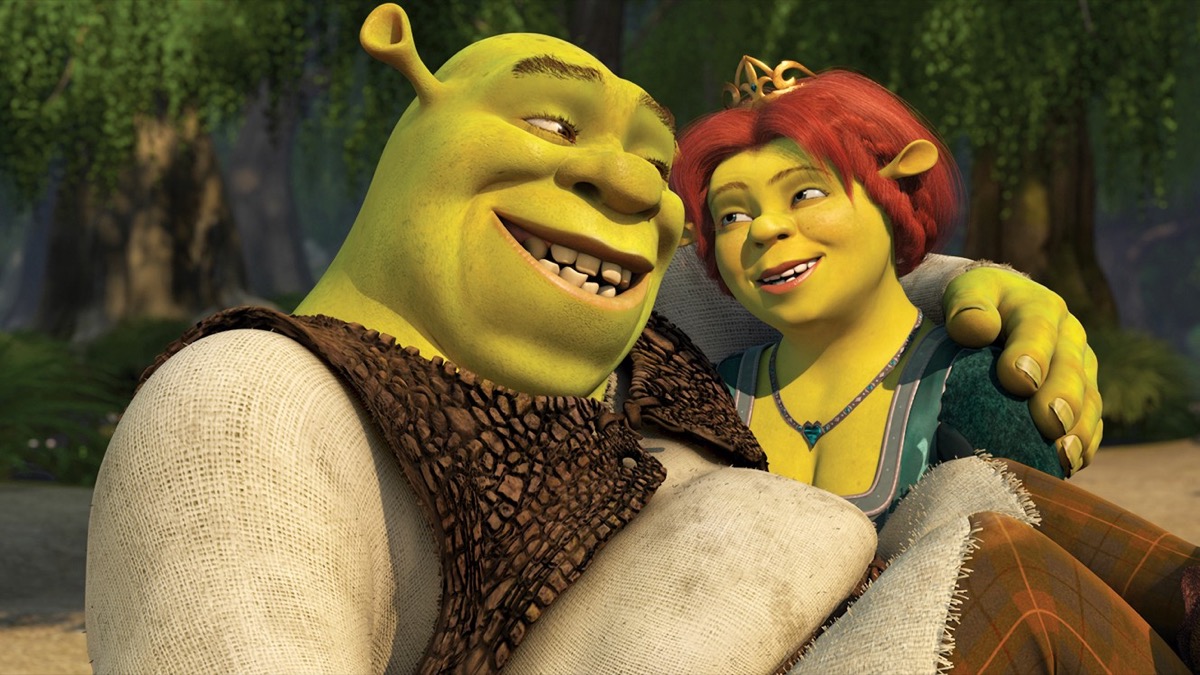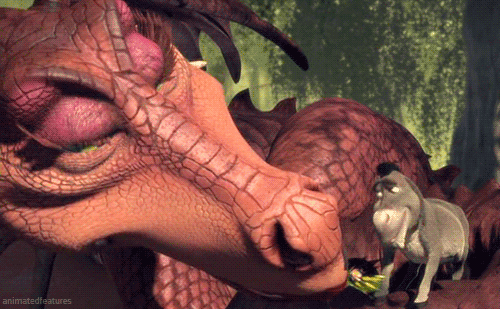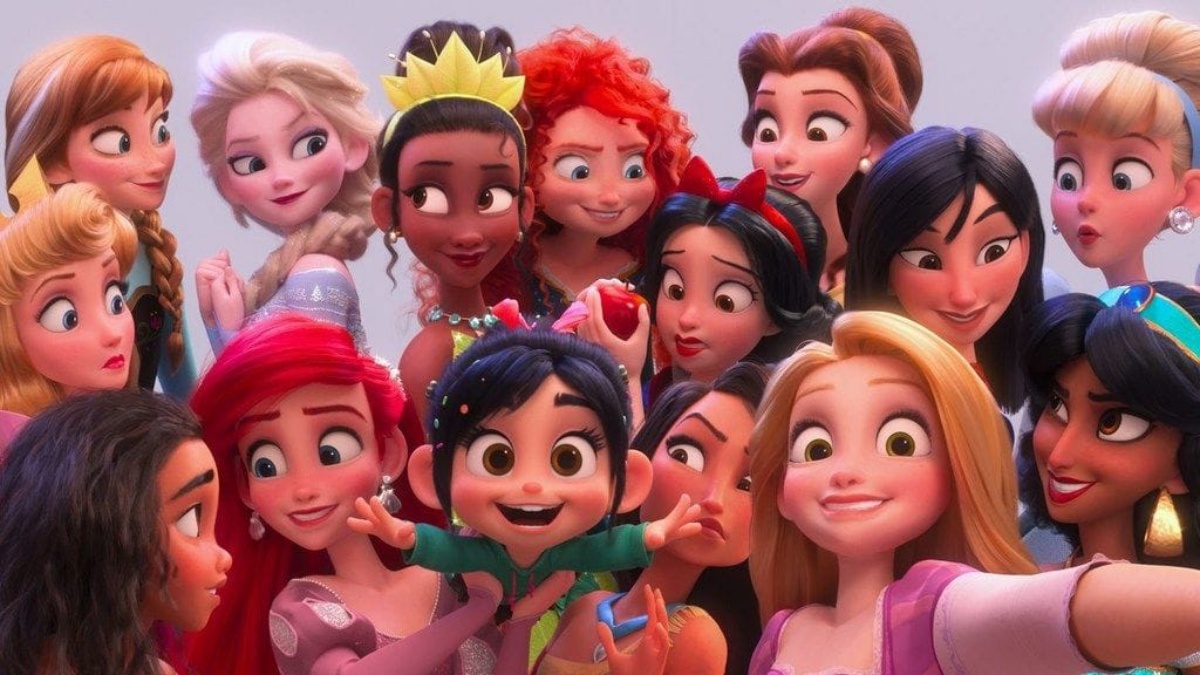Jokes (and Memes) Aside, Shrek Deserves Its Spot in the National Film Registry

It’s that time of year when the National Film Registry adds 25 films to the Library of Congress. This year’s inductees include classic movies that had surprisingly not been selected in the past such as A Clockwork Orange and Grease, modern classics like The Hurt Locker and The Dark Knight, and more. But one inclusion in particular gained the internet’s attention—and, in some cases, confusion: 2001’s Shrek.
While DreamWorks is best known these days for the Despicable Me trilogy and its Minions spinoff movies, in the 2000s, it was all about Shrek. It’s been almost 20 years since the titular ogre graced the big screen for the first time, and in the decade that followed, the franchise spawned three sequels, a spinoff movie, a Broadway musical adaptation, and two holiday TV specials.
Nowadays, however, it’s mainly seen as a weird internet meme from the zillennials who grew up with the franchise who, in hindsight, can’t quite grasp whether or not this flipped-around fairytale gone wild—featuring a police-style interrogation of a sentient gingerbread cookie, a romance between a donkey and a dragon, and a dating game show hosted by a magic mirror (and that’s just the first movie)—a was a real franchise or just a collective fever dream for those of us on the cusp between Gens Y and Z.
But Shrek’s legacy in the pop culture world goes far beyond a few internet jokes, and the movie is actually a quality selection for the NFR. The chosen films are considered “culturally, historically, or aesthetically significant” enough to be preserved for future generations, and I can’t think of an animated movie that has had more influence on animated film this century—particularly on the juggernaut that is Disney—than Shrek.
To explain this, I’m going to need to give you a little history lesson: During the 1980s and ’90s, Jeffrey Katzenberg was in charge of Disney’s film division and played a big part in turning it around from its “dark age” to the era widely known as the Disney Renaissance, with a streak of animated hit movies like The Little Mermaid, Beauty and the Beast, and Aladdin. But there ended up being a debacle between him and then-CEO Michael Eisner over his position, and he ended up leaving (and suing) the company in 1994.
Katzenberg then went on to co-found DreamWorks SKG (the acronym referring to Steven Spielberg, Katzenberg, and David Geffen) and run the new studio’s animation department. He soon accepted a pitch to adapt William Steig’s 1990 picture book Shrek (yes, it was a book first!), which ended up becoming the perfect vehicle for airing his frustrations with his former workplace.
Some of the digs were obvious—like the “It’s a Small World” parody and the way Fiona’s transformation into an ogre at the end of the film very closely resembled the way the Beast turned into a human at the end of Disney’s Beauty and the Beast—while others were more covert unless you were looking, like how the villain, whose name sounds dangerously close to a certain insult beginning with the letter F, bears a striking resemblance to Katzenberg’s former boss at Disney. But it was clear that the world of Shrek was intended to be the antithesis to the “Magic Kingdom” of Disney.
Shrek ended up coming out at the perfect time; by 2001, Disney’s Renaissance period had come to an end, and audiences were just fatigued enough of the typical musical coming-of-age romance story Disney was so famous for to be able to appreciate a movie that parodied the genre and knocked it down a few pegs in a way that Disney seemed to think they were “above” doing. Not only that, but its use of modern language and sensibilities (and, yes, some humor that was much more crude than was typical of animated family films at the time) resonated with audiences so much that they became a trademark of DreamWorks movies going forward.
Dreamworks scratched an itch that Disney couldn’t. While Disney was so conscious about its own image and its mission to bring audiences into a whimsical world of, as they often put it, “magic” and “dreams,” DreamWorks wasn’t afraid to get down on the audience’s level with winks at the audience’s expectations and humor geared more towards adults. (Also, dance parties. So. Many. Dance parties.) And that’s exactly why DreamWorks beat out Walt Disney Animation at the box office more often than not in the 2000’s.
And eventually, Disney started to cave. They switched to a fully 3D-animated theatrical slate. They put slapstick-style humor and edgier jokes into their films. And they started to make fun of themselves, to the point that it’s one of their signature things to do now. Without Shrek and its sequels, we wouldn’t have gotten Anna’s realization of what true love really means in Frozen, Maui’s “princess” jokes in Moana, or the ultimate Disney Princess crossover in Ralph Breaks the Internet, which sees the ladies teach Vanellope what it means to be a princess and team up Avengers-style to save “a big strong man in need of rescuing” (the latter of which had totally already been done a decade prior in Shrek the Third).
Shrek not only broke all the rules of fairytales and family filmmaking, but it redefined them. I’d say that’s more than enough for it to be considered “culturally, historically, or aesthetically significant” enough for the National Film Registry, hitting two out of three of the options (the animation itself admittedly doesn’t quite hold up nowadays, and it didn’t come out quite soon enough for it to truly be a significant moment in that respect). Shrek is definitely a strange, silly, meme-worthy franchise, but today I’m going to go have some celebratory waffles for the recognition of the influence it has had on cinema.
(featured image: Dreamworks)
Want more stories like this? Become a subscriber and support the site!
—The Mary Sue has a strict comment policy that forbids, but is not limited to, personal insults toward anyone, hate speech, and trolling.—
Have a tip we should know? [email protected]


